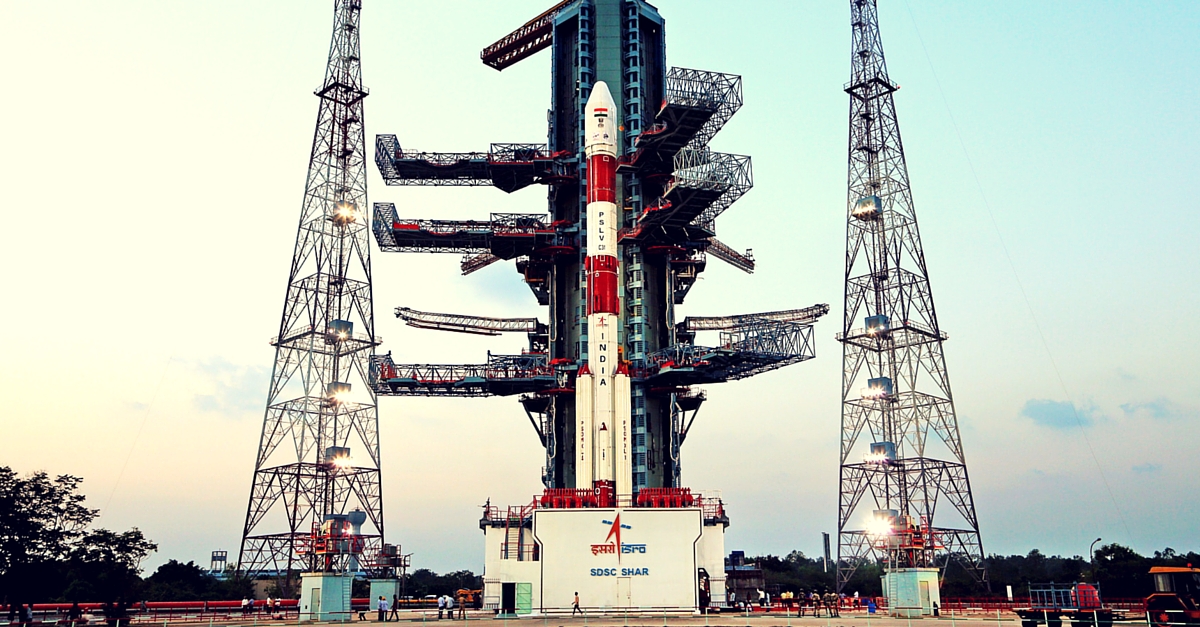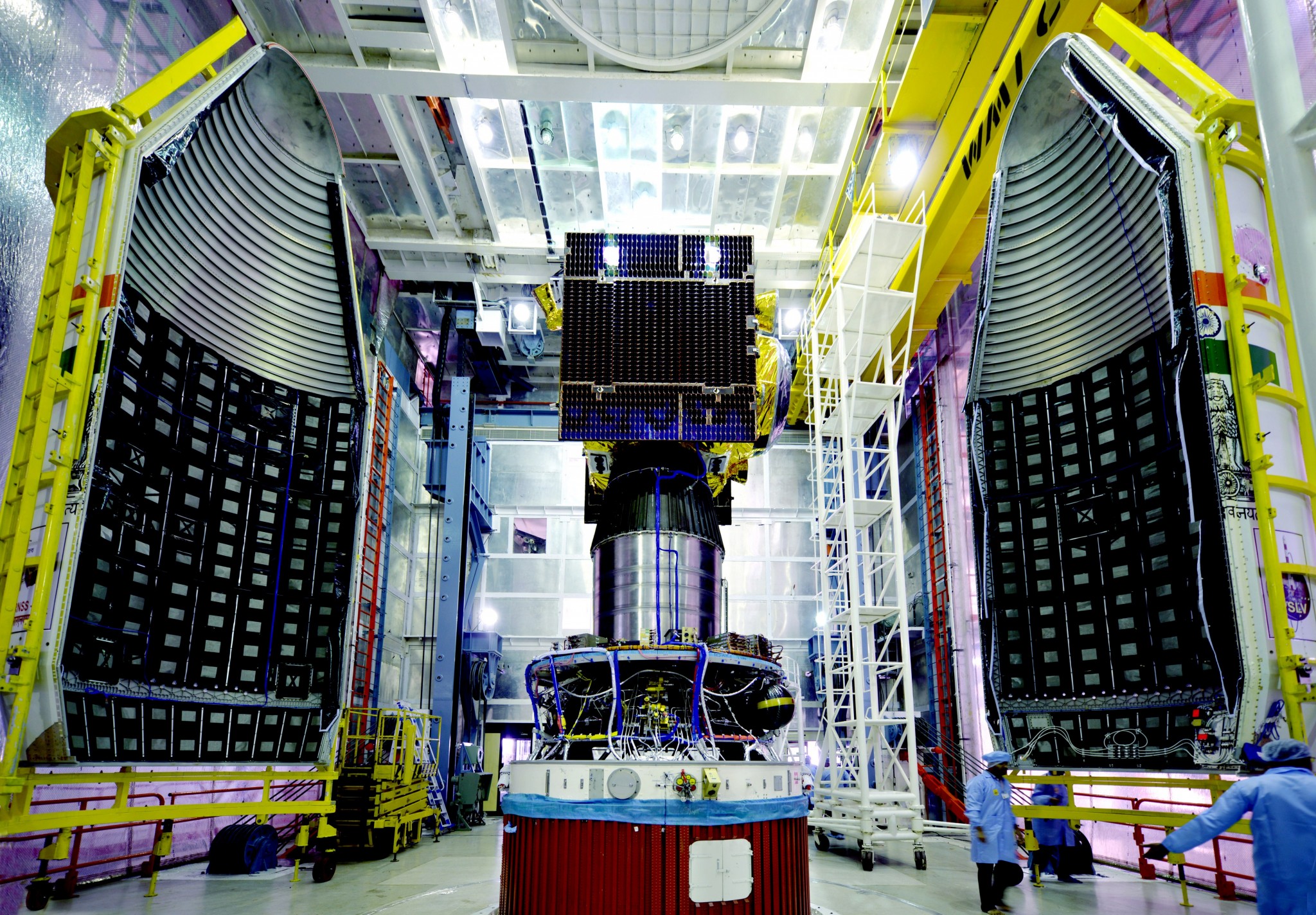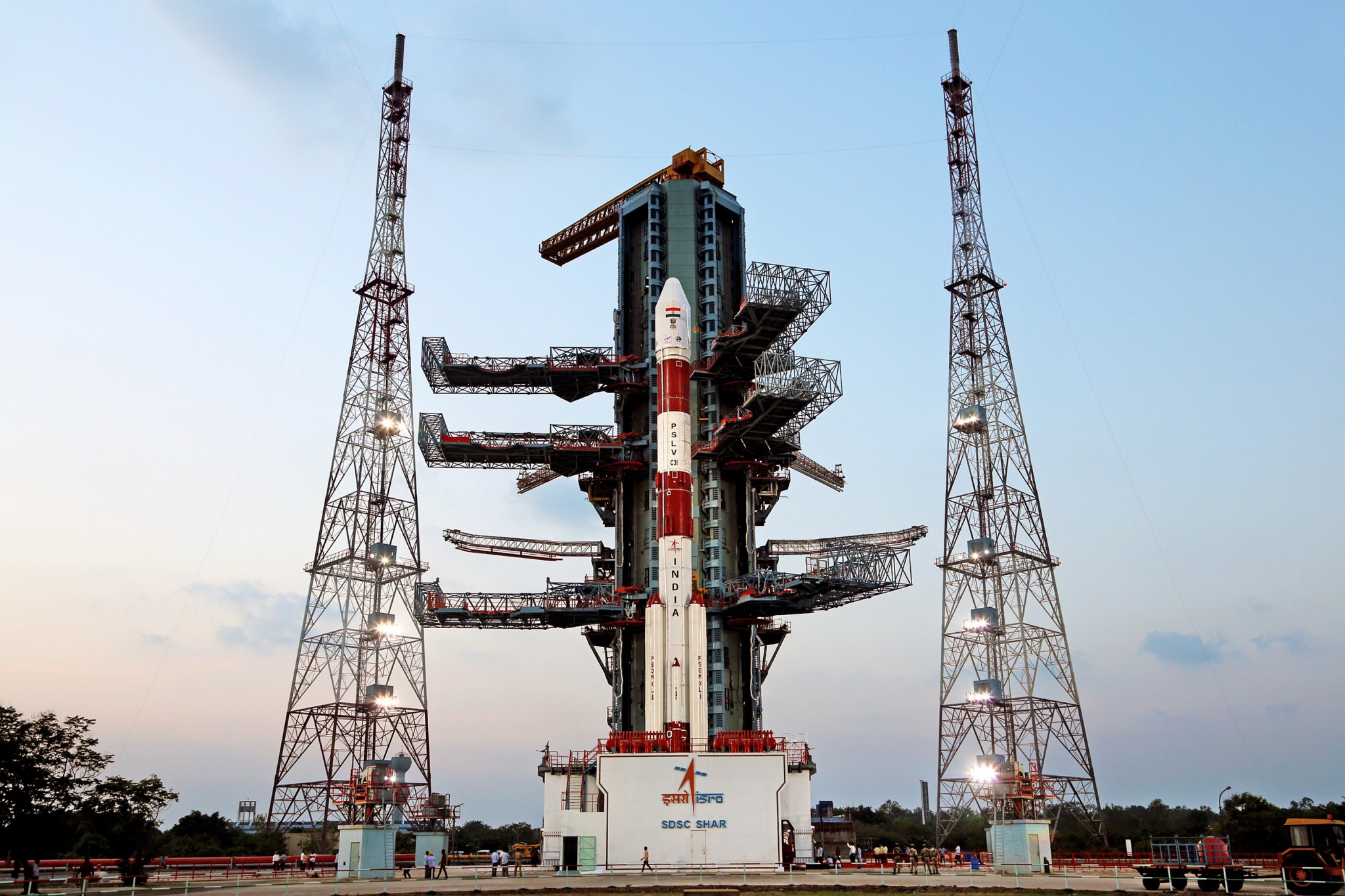ISRO to Launch India’s Fifth Navigation Satellite, Taking Us Closer to Our Own GPS
The 48-hour countdown for ISRO’s first satellite launch in 2016 has started. PSLV-31 is all set to take off on Wednesday morning, carrying India's fifth navigation satellite, IRNSS-1E.

The 48-hour countdown for ISRO’s first satellite launch in 2016 has started. The Polar Satellite Launch Vehicle (PSLV-31) is all set to take off on Wednesday morning carrying India’s fifth navigation satellite, IRNSS-1E.
The launch is scheduled for 9:31 am from the second launch pad at the Satish Dhawan Space Centre in Sriharikota, Andhra Pradesh.

Source: isro.gov.in
IRNSS-1E is the fifth navigation satellite of the seven satellites constituting the Indian Regional Navigation Satellite System (IRNSS). It has a lift-off mass of 1,425 kg and has two types of payloads – the navigation and ranging payload. The satellite’s life span is 12 years. IRNSS-1A, the first satellite of this system, was launched in July 2013. IRNSS-1B was launched in April 2014, IRNSS-1C in October 2014 and IRNSS-1C in March 2015.
The constellation of these seven satellites will lead to the development of an indigenous position determination system. It will provide accurate position information to users across the country and will be under complete control of the Indian government.
The entire IRNSS constellation of seven satellites is expected to be completed in 2016 itself, and it will be at par with US-based GPS.

Source: isro.gov.in
“We will have our own position determination system using our own navigation constellation, the IRNSS series which will be operational by middle of next year. It is a kind of replacement GPS…The US is offering the GPS navigation, IRNSS is indigenous,” Deviprasad Karnik, the director of publication and public relations, ISRO, had said earlier.
The navigation payload of IRNSS-1E will transmit navigation service signals to the users. A highly accurate Rubidium atomic clock is also a part of the navigation payload. The ranging payload will help in accurate determination of the range of the satellite. IRNSS-1E also carries Corner Cube Retro Reflectors for laser ranging.
According to reports, the next two IRNSS satellites, 1F and 1G, are also in the advanced stages of integration and will be launched in February and March, 2016.
IRNSS-1E will be placed in a geosynchronous orbit over 111.75 degrees east longitude. It will go around Earth at a distance of 20,000 km, inclined at 28.1 degrees.
Like this story? Or have something to share? Write to us: [email protected], or connect with us on Facebook and Twitter (@thebetterindia).
This story made me
- 97
- 121
- 89
- 167
Tell Us More
We bring stories straight from the heart of India, to inspire millions and create a wave of impact. Our positive movement is growing bigger everyday, and we would love for you to join it.
Please contribute whatever you can, every little penny helps our team in bringing you more stories that support dreams and spread hope.


















